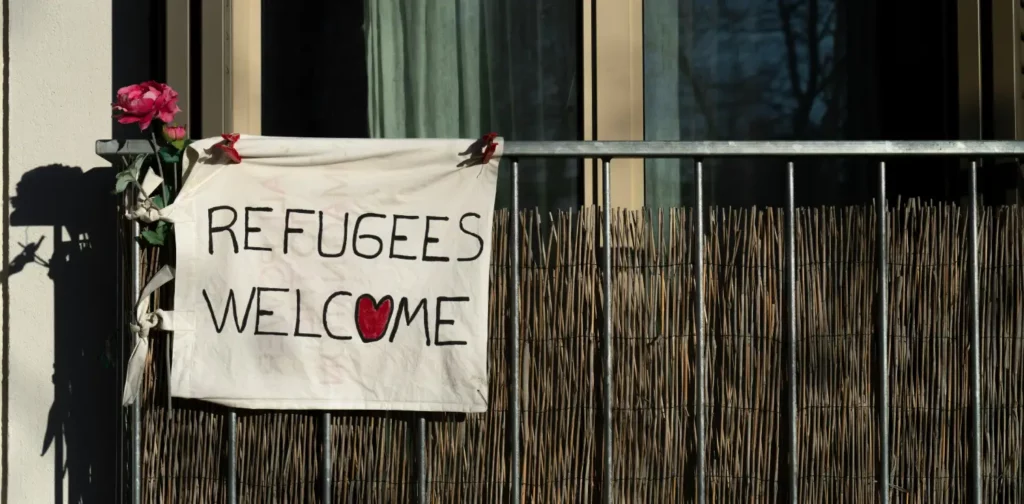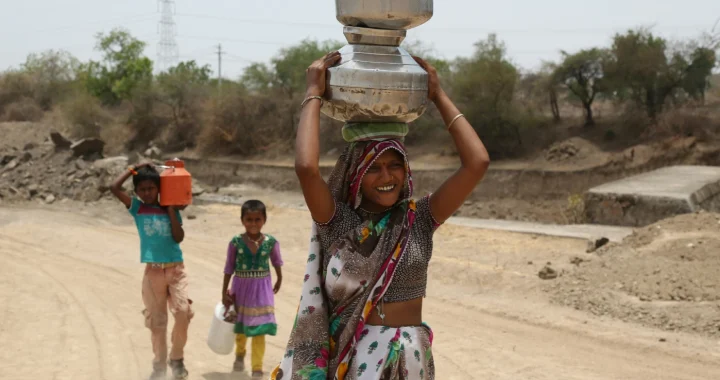5 Ways You Can Support Refugees in Your Community

Photo by Ricardo Gomez Angel on Unsplash
The world is grappling with multiple crises at the same time. From climate to conflict, crises impact people and the planet in so many ways. Villages are flooded, forests burn, prices skyrocket, learning gets disrupted, and people become refugees. In a time of polycrisis, solidarity and collaboration are more important than ever, including for those seeking asylum. As individual citizens, what can you do to help support refugees around you?
Rising Trend Worldwide
Refugees refer to people who fled their home countries to escape precarious situations like conflicts, persecution, and disasters. Meanwhile, internally displaced persons are those who are forcibly displaced within their own countries, never crossing international borders. Both are the results of forced displacement.
The number of forcibly displaced people has continued to rise in the past 12 years. Data from the UNHCR shows that the estimated number reached 117.3 million at the end of 2023, showing an 8% increase from 2022. What is behind this life-altering ‘trend’?
Conflict-driven displacement is one of the main drivers of this trend. In the last few years, conflicts have broken out more frequently across the globe, including in Sudan, Myanmar, and Palestine, forcing more people to flee in search of protection. Furthermore, extreme weather events, natural disasters, and other climate-induced crises are major factors that exacerbate people’s vulnerabilities in conflicts and push displacement.
Actions to Support Refugees
Refugees suffer through unimaginable conditions to survive. Their homes are no longer safe, yet the road to relative safety is long and dangerous. In interviews with the UNHCR, 31,500 refugees and migrants reported risks such as rape, torture, kidnapping, human trafficking, and other human rights violations along the Central Mediterranean route.
However, their hardship continues once they arrive. Too often, they face more challenges as refugees in new countries, struggling to build safe and meaningful lives for themselves. They are also at risk of becoming stateless. Moreover, beyond systemic discrimination, refugees may face refusal and hostility from the local people.
While governments, organizations, and other related parties bear the biggest responsibility to ensure the safety and wellbeing of refugees, there are also things that you, as citizens, can do to help refugees:
- Educate Yourself
Getting familiar with issues related to displacement is the first step in supporting refugees and displaced people. Reading trustworthy news and joining conversations in your communities and beyond can help deepen your understanding of who is considered a refugee, what causes the situation, and what you can do to help. Then, you should also learn more specific details about refugees living in your country.
- Donate & Sponsor
Refugees and displaced people suffer great financial loss when they leave their homeland. Sometimes, their homes and belongings are destroyed. Plus, it takes a lot to finance operations to safely get them out of danger, situate them in new places, and rejoin their families. Donating to trusted organizations near you or sponsoring them is one of the most helpful ways to support refugees.
- Volunteer
Humanitarian aid workers play a crucial role throughout the entire process. Your time and energy can be a much-needed resource. So, lend extra hands by volunteering at the nearest refugee-supporting organizations and be a part of something meaningful.
- Share & Advocate
Migrants, refugees, and displaced people are often overlooked. At the same time, refugees can easily become victims of systemic and social discrimination. Sharing their stories, amplifying their voices, fighting misinformation, attending protests, and advocating for their rights are good ways to help support refugees around you. You can do this by connecting with people in your local communities, in your daily conversations, or through digital activism.
- Support Integration
Living in a new country is not easy. As refugees, the challenges are even greater on all fronts. Supporting their meaningful integration and making them feel welcome and safe can go a long way, and there are plenty of aspects to tackle. For example, you can help provide refugees with adequate housing and employment opportunities. You can also be a part of their new connections, offering mental health support as a community. Engaging in cultural exchange with refugees is also helpful as a way to respect their cultures while welcoming them into yours.

Co-create positive impact for people and the planet.
Amidst today’s increasingly complex global challenges, equipping yourself, team, and communities with interdisciplinary and cross-sectoral insights on sustainability-related issues and sustainable development is no longer optional — it is a strategic necessity to stay ahead and stay relevant.


 Embracing the Business Value of Sustainability
Embracing the Business Value of Sustainability  American Farmers Call for Government Support Amidst PFAS Contamination
American Farmers Call for Government Support Amidst PFAS Contamination  Asia Pacific’s SDG Progress Faces Major Setbacks
Asia Pacific’s SDG Progress Faces Major Setbacks  Exploring the Bidirectional Relationship Between Olympic Games and the Environment
Exploring the Bidirectional Relationship Between Olympic Games and the Environment  The Hidden Threat of Tire Pollution to Salmon Populations
The Hidden Threat of Tire Pollution to Salmon Populations  Understanding the Climate-Care Nexus
Understanding the Climate-Care Nexus